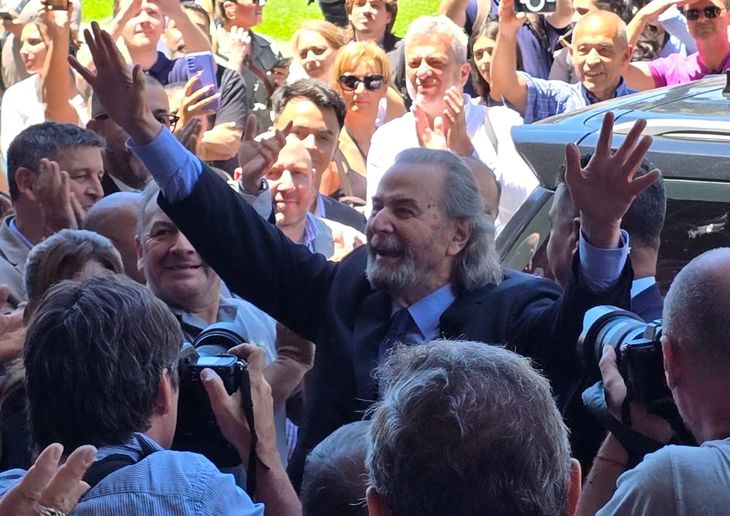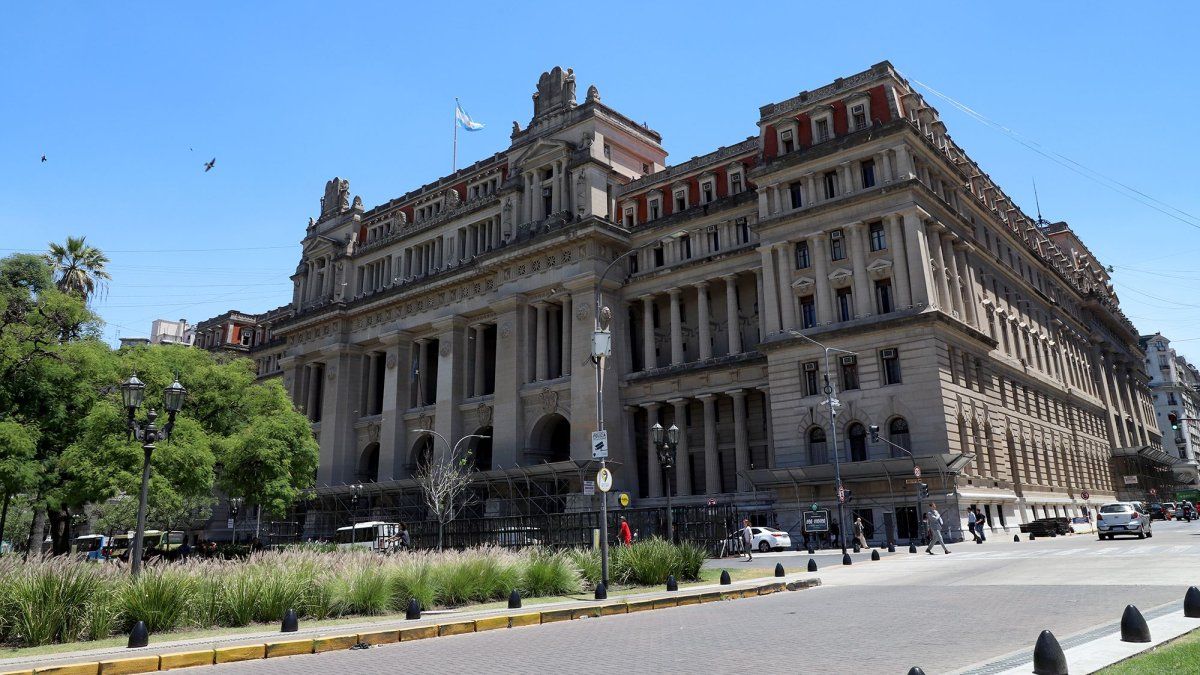It is a precedent for the Correo Argentino case that impacts Mauricio Macri’s family. The TSJ can review the sentences of the ordinary justice of the Federal Capital
At the edge of the judicial fair and on the last day of Juan Carlos Maqueda in the Supreme Court, The so-called “Levinas” ruling was signed, expected because it once again paves the way for the Superior Court of Justice of the Federal Capital to be a kind of reviewer of the sentences of the ordinary national justice system.. With a difficult development that included a majority that was made up of Maqueda himself and Ricardo Lorenzetti – who in recent days did not spare him direct criticism of his outgoing peer -, in addition to the vote of Horacio Rosatti, the sentence is considered a prelude to what may happen with the Correo Argentino case that interests Mauricio Macri’s family and that has been navigating the commercial jurisdiction for decades.
The content you want to access is exclusive to subscribers.
“Levinas” is linked to the precedents “Corrales”, “Bazán” and “Nisman” which were sentences that had the same majority and that support the idea that in the Federal Capital, and before the cases escalate to the Supreme Court , the Buenos Aires TSJ has the power to review the sentences handed down by the Appeals Chambers of the national justice system. This was widely resisted by the judges of the so-called ordinary justice because it subjected them to the review of an intermediate body, with local incidence.. Carlos Rosenkrantz maintained his opposition, as in previous cases.


If this failure has a particularity, it is that it cannot be read linearly. With the departure of Maqueda, the majority that made up the precedents and this ruling itself disappear, which does not mean that it is not sought to extend it to the Correo case.. The conclusion of the Supreme Court is that the “superior” of the ordinary justice of the Federal Capital is the TSJ. This represents a blow to the large number of magistrates who resist what they understand as a kind of forced transfer to the Buenos Aires orbit, placing the local TSJ above the decisions of the chambermaids.
Maqueda last day at Court.jpg

Juan Carlos Maqueda is fired by Supreme Court workers at the end of his last day.
For the Court, there is “an anomalous situation in the City of Buenos Aires, where local and national justice with ordinary jurisdiction (civil, commercial, labor and criminal) still coexist, despite the provisions of Article 129 of the Constitution. National that guarantees local autonomy, in the Constitution of the City of Buenos Aires and the commitments assumed by the national and local legislative authorities to transfer judicial powers.” The Highest Court stated that “thirty years after the reform of the National Constitution, twenty-eight since the sanction of the Buenos Aires constitution, nine from Corrales, seven from the signing of the last agreement – which already shows a stagnant political process- “and five years after the ‘Bazán’ ruling, the ‘immobility’ remains.” Hence, the Court considered it imperative, as a derivation of that line of jurisprudence, to continue “adapting its actions to that imposed by the text of the National Constitution, beyond the fact that the National State and the Government of the Autonomous City of Buenos Aires “perpetuate the situation described.”
But in a relevant paragraph, the Court clarified that what was resolved does not affect the temporary continuity of ordinary national justice within the structure of the Judicial Branch of the Nation until the transfer is made effective, but decided that this new jurisprudence be applied to the “cases pending decision in which an analogous conflict has already arisen and appeals directed against sentences of national chambers […] that were notified after this ruling.” and urged the competent authorities to adopt the necessary measures to adapt the corresponding laws to the constitutional mandate. The Correo Argentino case integrates that package.
Carlos Rosenkrantz expressed his dissent. In essence, he pointed out that “from the transitory nature of the current situation it does not follow that this Court should alter the criteria established by Article 6 of Law 4055 and by a century-old jurisprudence regarding which is the superior court of the case the purposes of the federal extraordinary appeal. Rosenkrantz concluded that establishing the Superior Court of Justice of the Autonomous City of Buenos Aires as an elevation of national courts – created by laws of the National Congress, made up of magistrates appointed by constitutional bodies of the national government, subject to a national disciplinary regime and whose jurisdiction is governed by norms of the same nature—represents an institutional redesign of significant importance in the Argentine federal system.” He went further: There is no possibility in the Argentine constitutional system for a local court to review decisions of national courts.said.
In the specific case, an action initiated by the heirs of the artist León Ferrari against Gabriel Levinas was resolved, the Superior Court of Justice of the CABA and Chamber A of the National Court of Civil Appeals entered into a conflict of jurisdiction due to the refusal of this to have its decisions reviewed by the superior court of Buenos Aires. Faced with this disagreement, the case was sent to the Supreme Court to define the issue, which once again set a precedent in favor of the TSJ as reviewer.
The decision generates a shock in the national judicial structures that hoped that this decision would not be crystallized before the end of the year.
Source: Ambito




